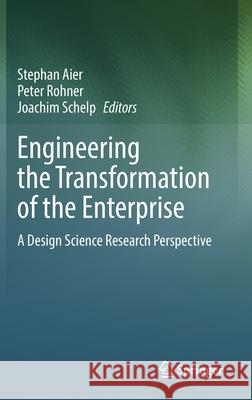Engineering the Transformation of the Enterprise: A Design Science Research Perspective » książka
topmenu
Engineering the Transformation of the Enterprise: A Design Science Research Perspective
ISBN-13: 9783030846541 / Angielski / Twarda / 2021 / 270 str.
Kategorie:
Kategorie BISAC:
Wydawca:
Springer
Język:
Angielski
ISBN-13:
9783030846541
Rok wydania:
2021
Wydanie:
2021
Ilość stron:
270
Waga:
0.72 kg
Wymiary:
23.39 x 15.6 x 2.24
Oprawa:
Twarda
Wolumenów:
01
Dodatkowe informacje:
Wydanie ilustrowane











